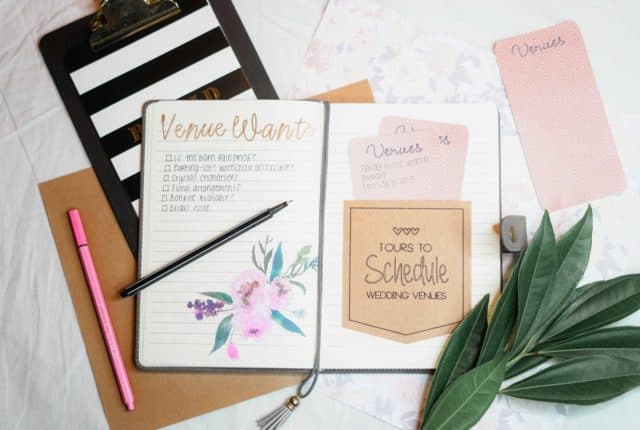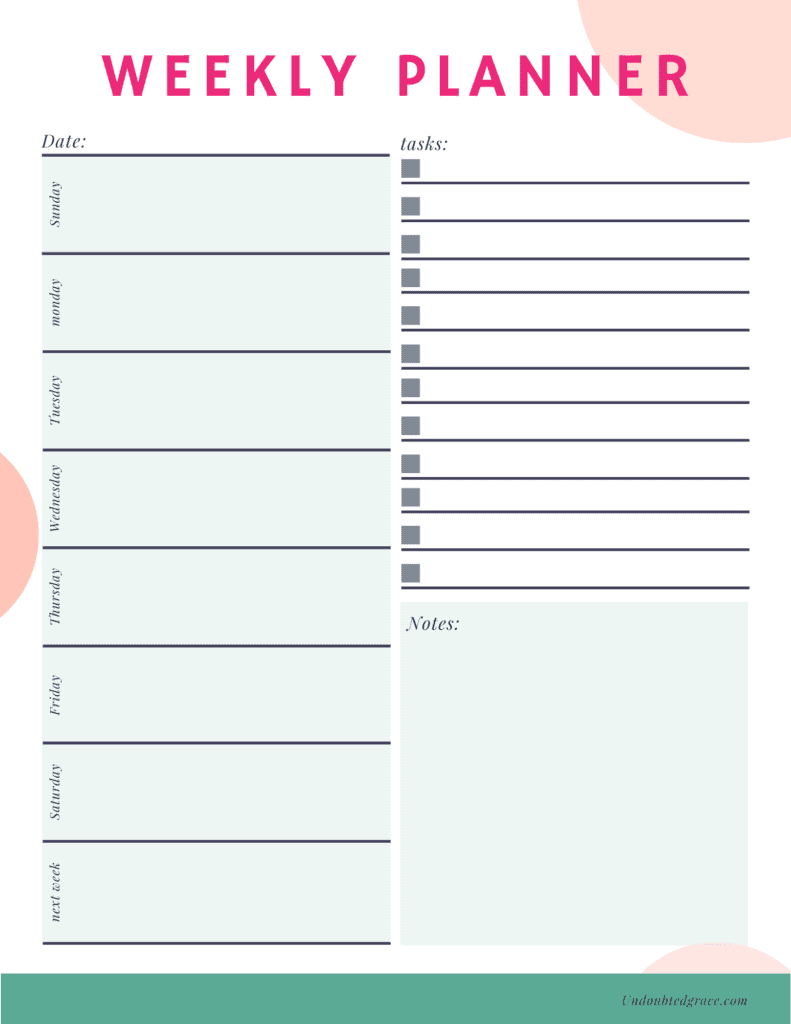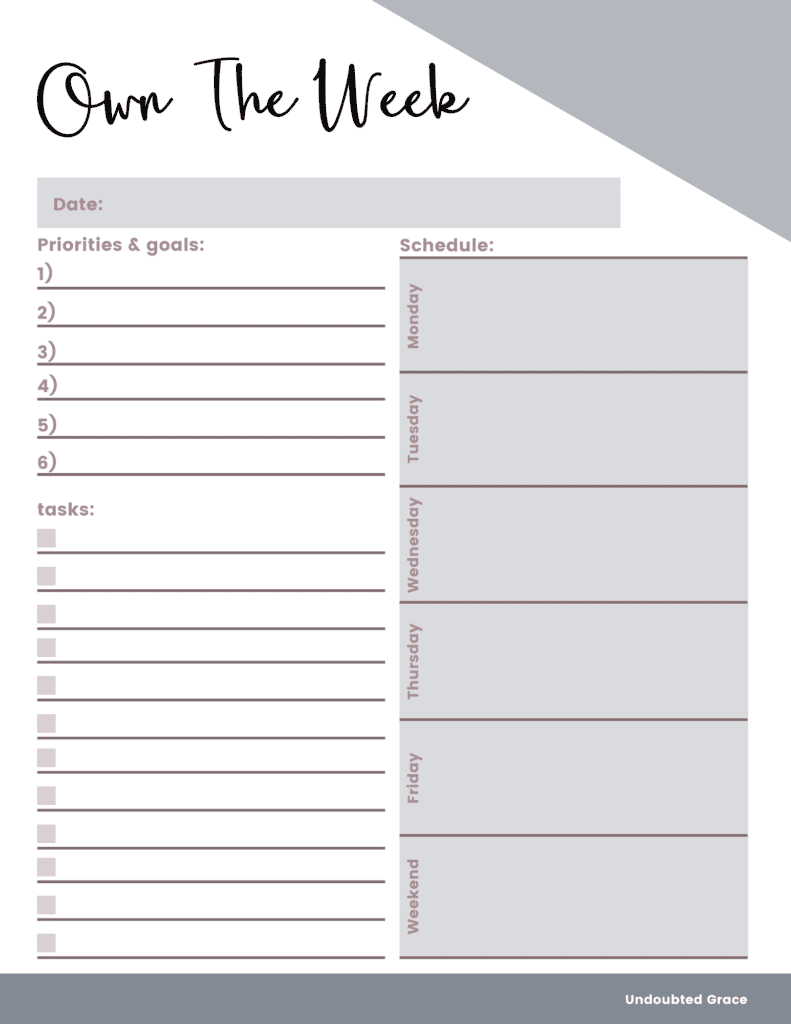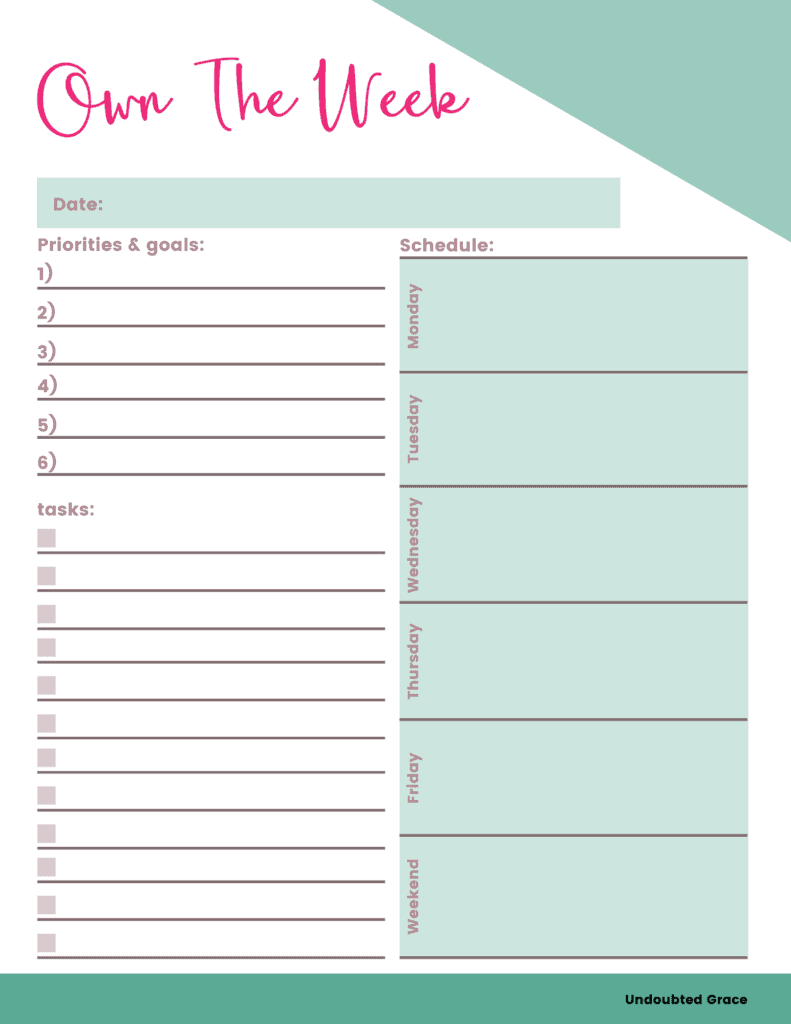If you have ever felt as if your weeks just seem to speed by with nothing to actually show for them passing then considering weekly planning may be a good idea for you.
When I had my daughter and began preparing to return to work, I was amazed at how little of my to do list I actually ended up doing between the diaper changes and the snuggles. Once my daughter would go to sleep I would get fixated on one thing or the other and very quickly I found myself having to rush to get everything done before it was time for me to be back at work full time. That seemed to be a constant until I became serious about planning my week.
Being intentional about making a plan for the things that I want to do has helped me increased my mental presence when I am spending time with my family as well as make sure that nothing gets left out in the week that needs to be done. Below are a few tips that have helped me incorporate planning my week into my self-care routine for less stress and more calm.
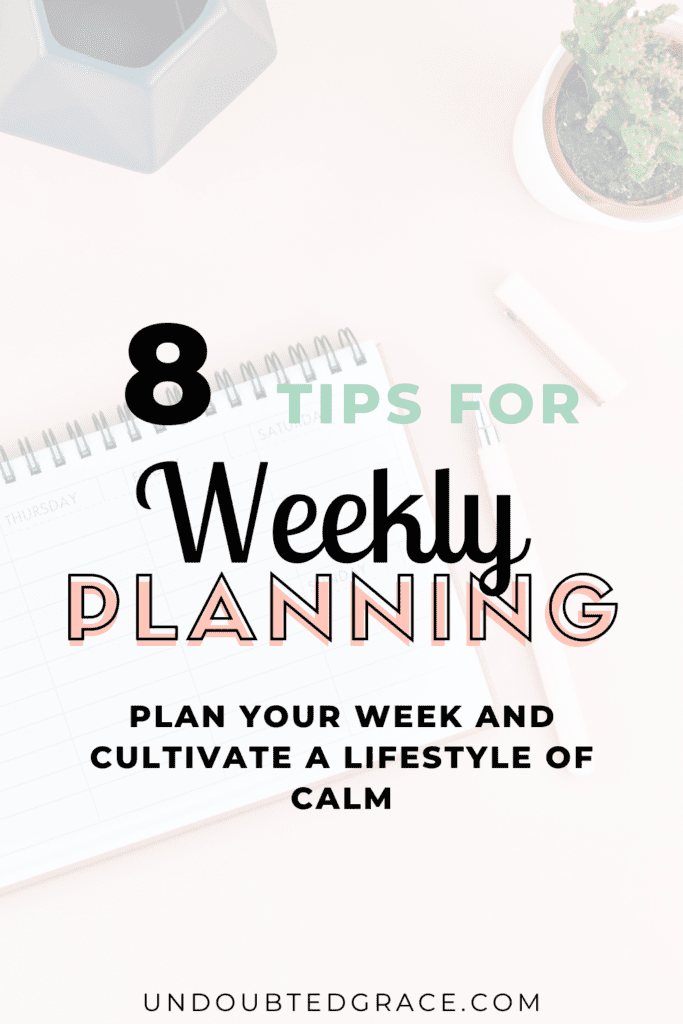
This post may contain affiliate links. You can read our entire affiliate disclosure here.
Why is weekly planning important?
When you decide to organize your life and start planning your weeks you may notice that there are many different types of planners! There are daily planners and monthly planners which have their intended purpose but can be cumbersome as you may need to maintain many different planners to track everything you need to keep account of.
Weekly planning allows for you to break up your big goals, tasks, and activities into smaller bite-sized chunks that you can visualize easily. When you begin planning your week you may find that traditional wall calendars do not give you enough space for every activity you want to schedule.
In addition to having the opportunity to visualize your entire week in one spread there are other benefits of weekly planning. These benefits include
You still get the benefit of daily space with weekly planning.
First of all, the spacing is going to be a little different with weekly planner pages, as opposed to daily or monthly. You get more space for each day as opposed to the monthly calendar pages, but a little less than daily pages. The weekly spread is good for when you are trying to work out which tasks need to be done in each day.
Let’s say for example you have a few appointments this week, along with some tasks that have to be completed before the weekend. You can work it out to where you space out your tasks and responsibilities throughout each day of the week, so you have time for everything.
You can take advantage of two-page spreads with weekly planners
Another benefit of the weekly planner pages is that many of them allow you to use a 2-page spread. Think about when you open a planner or book – typically you see two different open pages. This is what you can take advantage of with a weekly spread.
You are able to do it in a few different ways. Some weekly planner pages have a few days of the week on the left side, then the other days of the week on the right. The benefit of this is that you have considerably more space for writing down notes, tasks, and to-do lists on each day.
Other spreads will have boxes for the entire week on one side, then things you track on the other side, like notes, to-do lists, health tracking, triggers, just about anything.
Planning your week makes creating weekly goals easier
Weekly planners are best when used to track and plan out goals! Weekly goal setting is much more realistic and achievable than monthly or yearly goals. When you set goals for the week you can more easily stay on track with different tasks since they are spread out throughout the week. The weekly pages are designed to make it easy to create and achieve goals throughout the week.
What should be included in a weekly plan?
Now that you understand the benefits and the importance of using a weekly planner, you may be wondering what you should plan weekly? The possibilities are endless when it comes to what to plan weekly. You should start first with your goals. Take time to set your goals and determine what activities you want to prioritize. Some examples of items that can be included in planning your week include:
- Meal plan and grocery lists
- Exercise plans
- Self-care checklist
- Daily habits/routines
- Cleaning charts and chores
- Large Work projects
- Kids activities and schedules
- Date night and other family time activities
There are thousands of additional items that you could add to this list. The important thing to remember is that weekly planning is a way to take a larger goal and break it into small chunks. Its also a way to make sure you are planning out time for activities that may not happen daily, but need to be done every week.

What is the best way to plan your week?
Whether you like working with to-do lists, or you are like me and have a collection of physical planners, there are some things that you can do to help make sure that your planning is successful. The following 8 tips for planning your week will help make sure you start and continue your weekly planning routine.
1. Create a to-do list – Starting with a to do list is a great way to brainstorm all of the things that need to happen for the week. Often times when we start writing directly on our weekly planner spreads we can easily get overwhelmed with the thoughts that are swimming in our mind and forget important tasks or underestimate the time we will need to complete everything.
2. Prioritize the activities – After you have completed writing out a complete list of activities that you want to plan for the week, you can be gin prioritizing these activities. It can be helpful to number activities from most important to least important. This will give you an idea of what activities you should focus on placing first. Priority can also be based on whether the activity has a defined deadline or a more flexible one.
3. Determine time necessary for each activity – Once you have prioritized your list assign each activity with a time frame. Make sure to include travel time, preparation time, etc.
4. Create a schedule and write everything do – At this point in planning your week you can begin placing the activities on your calendar. Make sure you place everything that you listed on your calendar. For this you may want to have different spreads to write the details of each activity. An example of this type of weekly planning would be to have a spread for meal planning specifically.
5. Plan self-care – an important part of planning your week, especially for the overwhelmed mom or busy profession woman is to make sure that you plan self-care into your schedule. This is often something that is neglected because we feel that we do not have the time to do it. We must first understand that there are many different ways to practice self-care. If you have determined the type of self-care you need you may find that scheduling self-care into your weekly plan may only require you to add 15 minutes of journaling to your daily routine.
6. Allow room for calm and spontaneity – One mistake that is often made with weekly planning is overfilling the schedule without any room for margin or spontaneity. This leads to a weekly planner that causes more stress than calm because of the busyness in it. I recommend instead you make sure to add margin for breathing or taking a break in your weekly schedule. This also allows you to be able to recover when the inevitable snag in the schedule occurs.
7. Create your Plan at the same time every week – Another helpful tip for those learning how to plan their week is to create your plan at the same time each week. Make your planning time a time of rest and self-care as well. Sit in a quiet corner or in your favorite space. Make yourself a cup of your favorite tea or cool drink and plan with a clear mind.
8. Build routines into your weekly planning schedule – the last and one of the most important parts of planning is to make sure that you build routines and schedules into your weekly plan. For example. If you want to workout daily and you have created a weekly fitness plan, try working out every day at the same time. This helps build a healthy habit as well as increases the chance that you will stick to your plan.
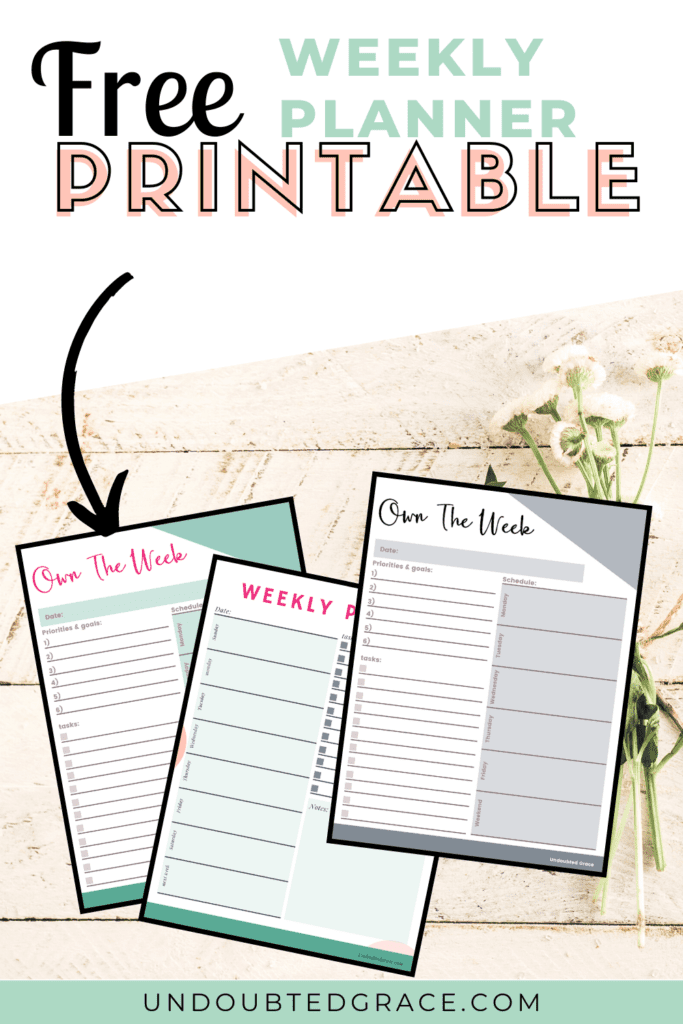
Best FREE weekly planner templates
If you are ready to start weekly planning, but aren’t quite ready to invest in a planner, you may want to consider trying one of these free weekly planner templates. All of these planner templates are printable and many can be downloaded without any sign-ups.
Scattered Squirrel Printable Planning Pages – No sign-up required YAY!!!
Day Designer Free Weekly Planning Pages – Beautiful minimalist pages from a trusted planner brand
On Planner Customizer Weekly Planner Pages – Lots of designs to choose from all customizable

